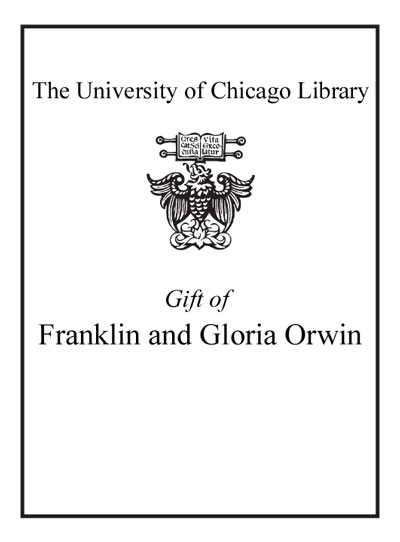Review by Booklist Review
Brkic galvanized readers with her first book, Stillness (2003), a Whiting Award-winning short story collection inspired by her unnerving work as a forensic archaeologist in war-torn Bosnia. She now presents an equally commanding memoir in which she chronicles her psychically demanding and dangerous work as part of a UN-directed effort to identify the remains of the massacred innocents of Srebrenica, and unearths the astonishing story of her paternal grandmother, a Croatian Catholic from Herzegovina. Orphaned at 14, then widowed young and left with two sons, Adelka flees the poverty of her village for Sarajevo, only to put her and her sons' lives in jeopardy by falling in love with, and hiding, a Jew during the Nazi occupation. The overlay of intimate tales from two demonically violent times makes for a highly dramatic work, and Brkic's emotional frankness, gift for vivid portraiture, ability to write about the dead with elegiac grace and scientific precision, and deep compassion for the victims of genocide create a riveting and thought-provoking reflection on humankind's barbarity and heroism. --Donna Seaman Copyright 2004 Booklist
From Booklist, Copyright (c) American Library Association. Used with permission.
Review by Publisher's Weekly Review
This heartbreaking memoir wends between Brkic's years in war-ravaged Bosnia (1993, 1996-1997), first interviewing refugees and then excavating mass graves outside Srebrenica, where 7,000 Muslim males were slaughtered, and including her family's history in Bosnia-Herzegovina surrounding WWII. Brkic, an archeologist, was 21 when she first began working in Bosnia with the UN International War Crimes Tribunal, and 24 during her second foray, with Physicians for Human Rights. A first-generation American of Croatian descent, she returns to Bosnia, invoking what, postwar, is only memory: the land of idyllic childhood summers where she remembers her aunt's catfish swimming in a tub and the taste of lamb fed on chamomile leaves in a countryside now littered with land mines. In the former garment factory, now morgue, outside Tuzla, where she works, Brkic feels alien to the other human rights workers; her ties to the region superimpose the face of her brother on the newly dead; her assertion that not everyone bears equivalent guilt for the war causes her to angrily demand that Serb workers not excavate the mass graves she believes they had a hand in filling. Whiting Award winner Brkic's haunting, hopeless memoir is an agonizing treatise on the awful cost of war and its long, pain-stoked aftermath in which, as she records it, those outside forget and those inside can barely continue living. Photos, maps. Agent, Sandra Dijkstra. (Aug.) (c) Copyright PWxyz, LLC. All rights reserved
(c) Copyright PWxyz, LLC. All rights reserved
Review by Library Journal Review
Whiting Award winner Brkic, who previously authored Stillness, a short story collection about the war in the Balkans, returns with this affecting genre crosser. Part history, part memoir, and part family saga, the book starts out as an account of Brkic's work at a morgue in Tuzla, Bosnia, where she worked with a UN forensic team to uncover the victims of the war's ethnic violence. It then shades in and out of the author's own family history, concentrating on the story of her Herzegovinian grandmother, who was widowed early on and imprisoned during World War II. Readers who were confused by details of the Balkan conflict during the time might still be confused after reading this, but the book as a whole is hypnotic. Poetic writing (that every so often is a touch too gloppy) and vivid imagery bring this area and its people to life with a certain amount of exoticness and mystery. Recommended for public and academic libraries, particularly those collecting in Eastern and Southeastern European studies.-Terren Ilana Wein, Univ. of Chicago (c) Copyright 2010. Library Journals LLC, a wholly owned subsidiary of Media Source, Inc. No redistribution permitted.
(c) Copyright Library Journals LLC, a wholly owned subsidiary of Media Source, Inc. No redistribution permitted.
Review by Kirkus Book Review
Short-story author Brkic (Stillness, 2003) combines a stirring, elegiac memoir of time spent picking up the dreadful remains of recent Balkan history with an exploration into her grandmother's life in the region. Names like Tuzla and Srebrenica send shivers down the spines of even those without a clue about where those towns sit on the fault lines of new Eastern Europe. Evil things happened there, the fallout of something sour and hoary among Muslims, Serbs, Croats, Slavonians, and Bosnians, and it was Brkic's job as a volunteer American field archaeologist to recover the remains of people who had been killed and dropped into graves, mass and otherwise. Seven thousand died in the Srebrenica massacre of 1995 alone, so there was plenty of work for her, as well as the pathologists, anthropologists, and the band of armed protectors accompanying them. Brkic had other matters to attend to as well; her paternal grandmother had lived in the area, and the author retells a grim story of internal exile and young widowhood, arrest for harboring a Jewish man during WWII, striving to stay put on shaky ground during the time of Tito vs. Stalin. That same ground shakes Brkic as well: she washes bones that have been delicately excavated, or dries clothes in hopes that they may be identified and a family's hopes laid to rest. Once her group recovers a rare letter from a remain; it had gone through the wash, and a co-worker brought it to her "cradled in the palm of his hand like an injured bird." The author displays a dark temperament in her narrative--hardly surpassing, given its content--and though meeting family members and finding a lover slightly lighten her load, she is finally undone by the horror of it all. Bears faithful, sensitive witness to the centuries' dire impact on Eastern Europe. (Photographs, family tree, map, not seen) Copyright ©Kirkus Reviews, used with permission.
Copyright (c) Kirkus Reviews, used with permission.
Review by Booklist Review
Review by Publisher's Weekly Review
Review by Library Journal Review
Review by Kirkus Book Review

